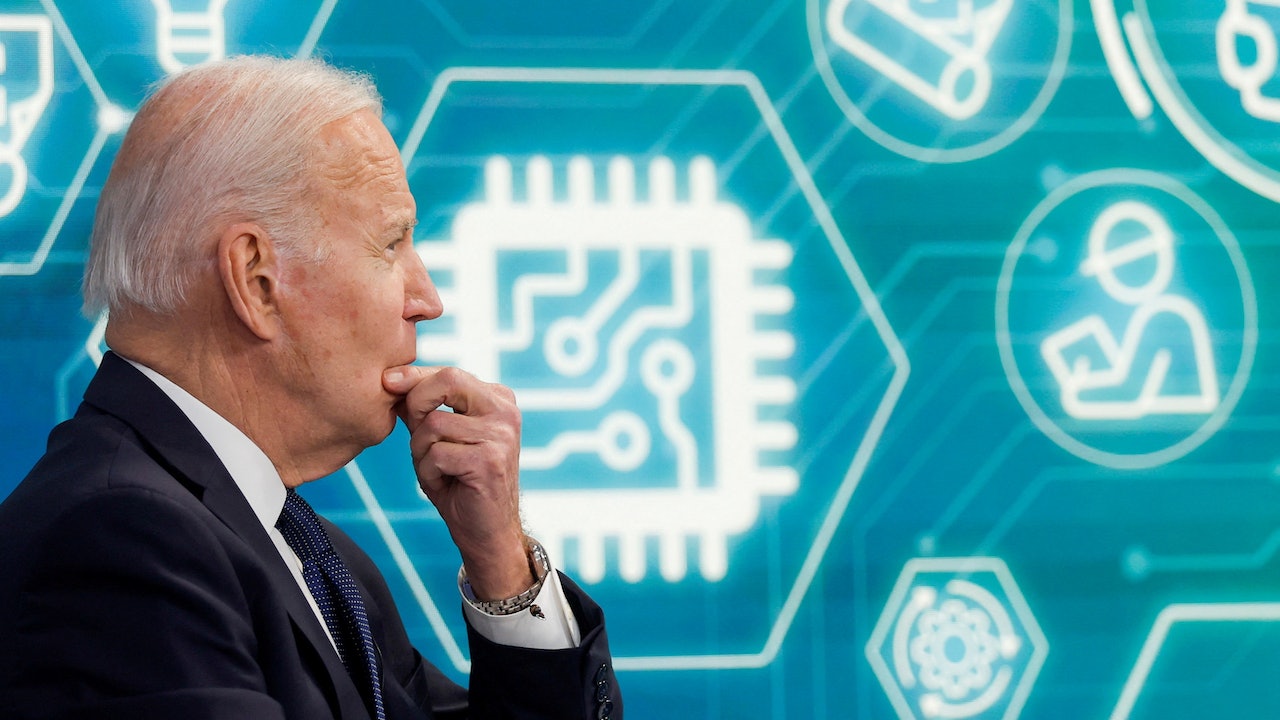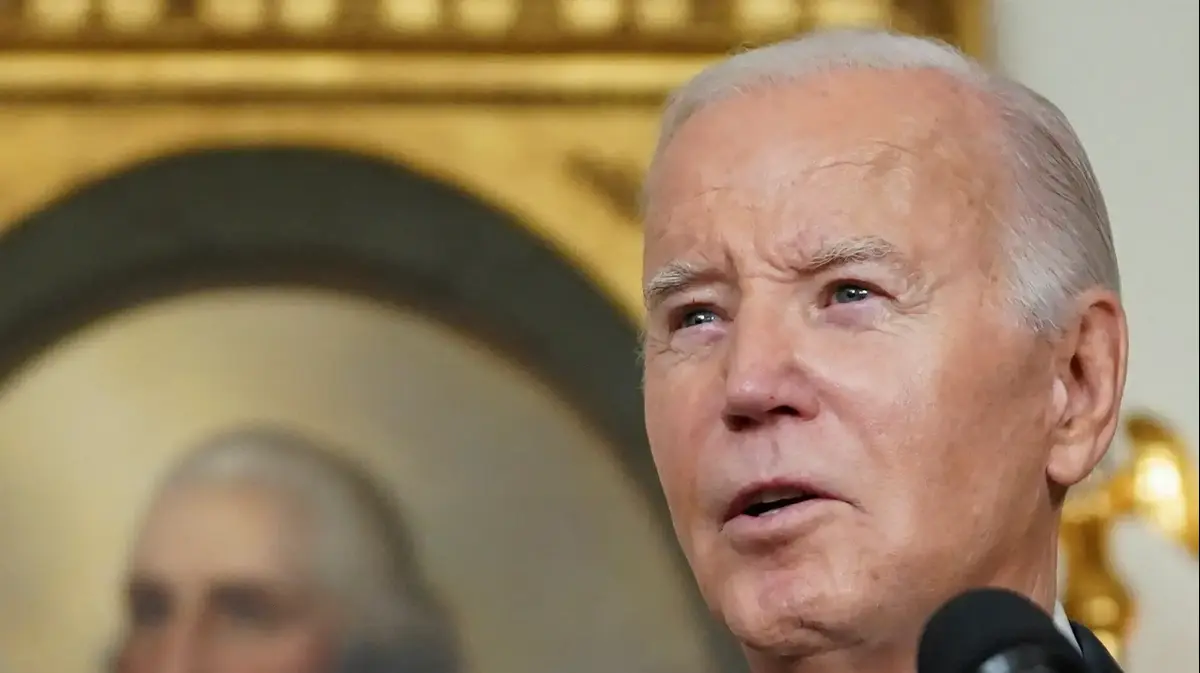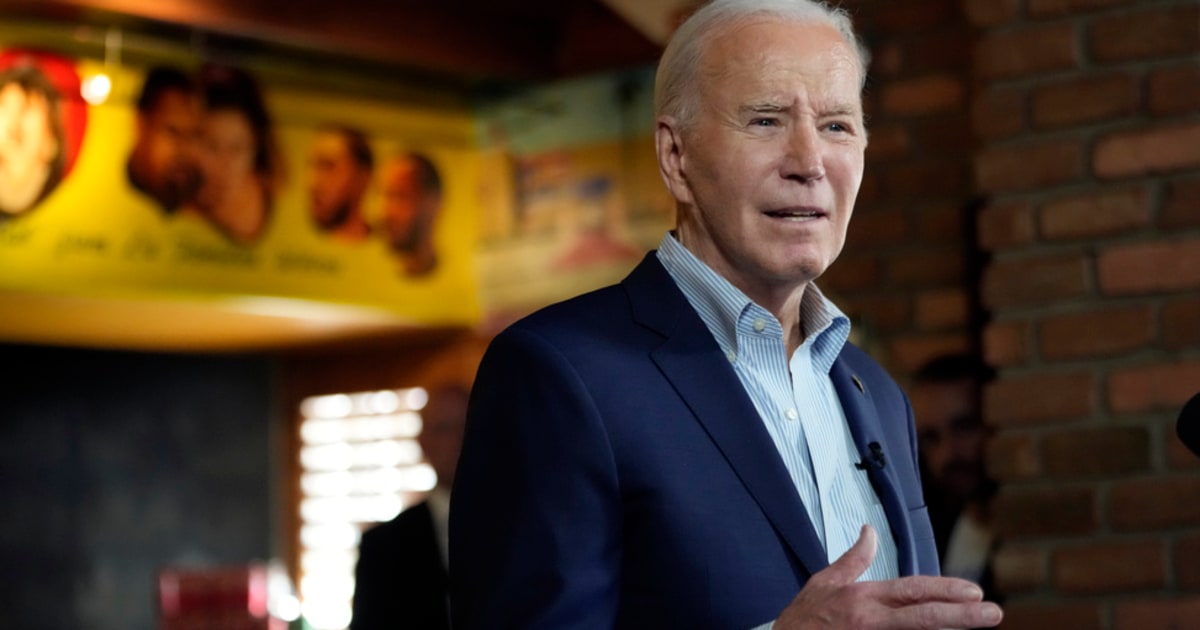On February 28, the U.S. Department of Commerce announced the detailed application procedures for semiconductor production subsidies in the $53 billion chip bill (production subsidies accounted for about $39 billion). Agreement, guaranteeing that within 10 years, it will not participate in any major transaction involving the substantial expansion of semiconductor production capacity in any foreign country of concern.
Since the Ministry of Commerce stated that its goal is to establish a "cutting-edge logic chip" manufacturing industry chain in the United States, the only major qualified companies are TSMC, Samsung, and Intel (Intel). If the cost of investment ranks with the United States, it will of course have an impact on the development of China's chip manufacturing industry.
However, under the banner of "containing China", Biden received bipartisan support in Congress to pass the chip bill in Congress, but it is not only aimed at targeting China, but also has a series of domestic and foreign policy goals.
This calculation of "killing several birds with one stone" may be the policy's "Achilles' heel" (Achilles' Heel, which means "Achilles' heel").
may offend allies
In addition to the long-term competitive goal of suppressing the development of China's semiconductor industry, the chip bill deals with a "national security" issue, which is not directly related to Sino-US competition in essence.
U.S. Secretary of Commerce Gina Raimondo said in a recent interview that more than 90% of the advanced chips in the U.S. come from Taiwan, calling it "an unsustainable national security weakness."
She also pointed out that defense and intelligence agencies will participate in the implementation of the chip law and provide opinions for it.
Such remarks and intentions against Taiwan will certainly cause some people to question whether the United States intends to break Taiwan's so-called "silicon shield".
U.S. President Joe Biden attended the moving ceremony of TSMC's new factory in Arizona on December 6, taking the opportunity to emphasize that his policy has allowed the job market to grow, and pointed out that TSMC's expansion of investment is "hopeful to change the rules of the game."
(Facebook/American Institute in Taiwan AIT)
Under the package of defending national security, the U.S. Department of Commerce proposed four goals to be achieved by 2030: one is to establish at least two new clusters of large-scale cutting-edge logic chip manufacturing factories, and the other is to establish multiple high-tech factories in the United States. The third is to produce high-volume cutting-edge memory chips, and the fourth is to increase the production capacity of modern and mature technology chips for key domestic industries.
These four goals, combined with the United States' existing leading position in chip design, chip production and key design technologies, mean that the United States will once again become the only leader in all aspects of the semiconductor industry.
Although the Ministry of Commerce stated that it would establish a cross-border semiconductor supply chain with U.S. allies, this willingness will inevitably conflict with Washington’s policy of attracting companies to invest in the United States with massive subsidies. It may not only conflict with mainland China, but also Taiwan and EU countries China, South Korea, Japan and other countries or regions with aspirations to the chip industry are caught in a vicious subsidy competition-this is reminiscent of how Biden’s "Inflation Reduction Act" that promoted the new energy industry on the one hand protected the domestic industry earlier. European allies complained.
This will not only hurt the diplomatic relations of the United States, but also may cause problems such as overcapacity, artificially driving up the cost of chip manufacturing, and so on.
U.S. Secretary of Commerce Raimondo.
(Reuters)
Will the chip bill become social policy?
The two goals of "suppressing China" and "national security" seem to be similar, and it is not an exaggeration to regard them as the policy goals of the same chip bill.
However, Biden's chip bill also comes with a series of domestic policy goals such as regulating corporate behavior, improving workers' rights, strengthening human resource training, racial and gender equality, and promoting emission reduction.
First of all, according to the Ministry of Commerce, subsidized companies will be prohibited from using the appropriation of the Chip Act to distribute dividends or buy back shares, and relevant companies will also need to report to the Ministry of Commerce in detail their stock repurchase plans for the next five years.
Share buybacks are seen as artificially inflating stock prices, benefiting shareholders and company executives, and doing nothing to improve innovation and productivity.
The Biden administration hopes to take advantage of the chip bill to regulate corporate behavior at the same time.
Secondly, companies that have received more than US$150 million in funding from the US government need to distribute part of the profits beyond expectations to the government, which can then be used for the semiconductor industry.
What constitutes "exceeding expectations" is determined on a case-by-case basis and depends on the financial forecast of the recipient enterprise.
Moreover, for companies to receive the subsidies of the Wafer Act, they will likely accept the establishment of labor unions, provide higher wages, and use American-made materials (such as steel, iron, etc.) to build their factories.
Manpower training projects such as the deployment of enterprise employee training and how to cooperate with local governments to support the development of technical schools will also be considered elements for subsidy approval.
The 2022 APEC Leaders’ Summit came to an end on November 19. Taiwanese representative Zhang Zhongmou (left) met with US Vice President Harrison Harris (right) on the sidelines that afternoon.
Zhang Zhongmou shared that US Vice President Harrison Harris "is particularly interested in chips", expressing welcome to TSMC's establishment of a factory in Arizona, and also reaffirming the determination of the United States to help Taiwan.
(APEC Chinese Taipei Delegation)
At the same time, companies receiving more than $150 million in aid will also be required to provide "child care" services for their factory employees and those who build factories, a move aimed at increasing women's labor force participation.
The Department of Commerce document pointed out that if the labor force participation rate of women was the same as that of men, the US labor force would increase by more than 10 million.
The universalization of child care services is a major policy goal that Biden has never been able to pass through Congress, so it can only be partially achieved through the chip bill.
In addition, whether the company can provide opportunities for small businesses owned by ethnic minorities, veterans or women to participate in its factory construction and production supply chain will also be one of the conditions for application consideration.
Bonus points are also awarded for companies that can demonstrate their responsibility for the climate and the environment, such as a commitment to fully use renewable energy.
The above-mentioned series of requirements related to domestic policy goals, and the subsequent costs, will reduce the attractiveness of the subsidy of the chip bill, not to mention the cost of the trade-off between China and the United States for the recipient companies.
Adam Ozimek, chief economist of the Washington think tank "Economic Innovation Group" (Economic Innovation Group, temporary translation), told the "New York Times" that trying to achieve a lot of unrelated goals will make the core challenge of strengthening the US semiconductor industry more serious. Difficult to achieve.
Regarding the application details of the Ministry of Commerce, the US chip industry responded generally positively.
However, the high subsidy of US$53 billion in the chip bill is actually just a drop in the bucket against the background that the total investment of global semiconductor companies in this decade is expected to reach US$3 trillion, and because many countries around the world are pushing subsidies for the semiconductor industry, Businesses also have other potentially better options.
The advantages of the United States, in addition to high funding, probably lie in its technological advantages in areas other than semiconductor manufacturing, as well as its market and geopolitical influence.
Whether Biden can rely on the chip bill to revitalize the US semiconductor industry while suppressing China, and at the same time promote a series of domestic economic and social policy goals, probably depends on how enthusiastic companies will eventually apply for subsidies.
Why does the chip bill have bipartisan support?
Under the epidemic situation, the shortage of chips has become prominent, causing production difficulties in many industries, coupled with the consideration of competition with China, so the bill has received the majority support of cross-party members in both houses of Congress.
Besides the chip bill, what other industrial policies did Biden pass during his first two years in office?
A $1.7 trillion infrastructure bill, and nearly $400 billion in the "Inflation Reduction Act" for new energy and climate policies.
Sino-US technology war reveals chip is "stuck" Chinese Academy of Sciences: China's basic semiconductor research lacks Chip4︱US-Japan-Korea-Taiwan chip alliance holds work meeting China has supported Russia since the Ukrainian war revoked the license to export chips to Huawei




/cloudfront-eu-central-1.images.arcpublishing.com/prisa/2QNGIEEKTFGRXYFY7DZOTWJJAI.jpg)


